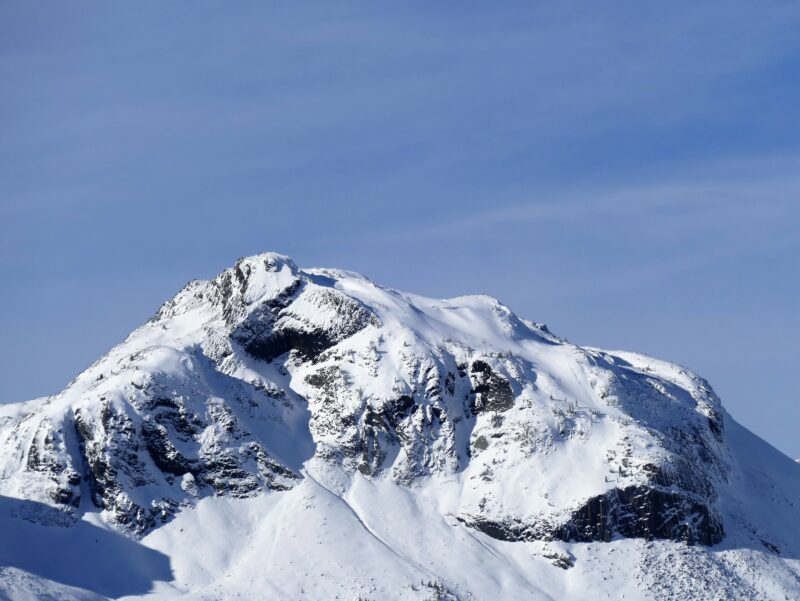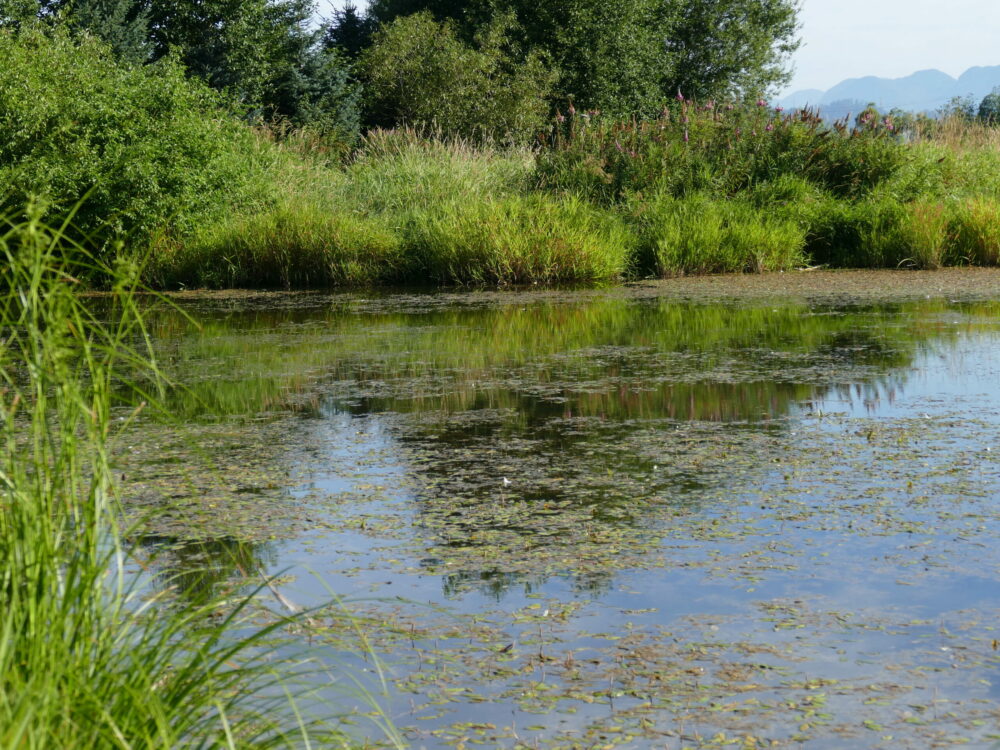What are the 10 Essentials for Hiking?
These 10 essentials for hiking, are what I consider the most important things to carry in your pack when you go hiking.
Hiking is a long walk in the outdoors, of about a day’s duration, in easy, moderate, or difficult terrain.
This is a day walk, where you expect to return home at the end of the day.
I like to use a 10-piece system whenever I can.
Think about the Metric System, or the 10 fingers on your hands, and 10 toes on your feet. Keep it simple!
Keep your 10 Essentials in a dedicated Hiking Daypack, and you’ll always be ready, and well prepared. No need to run all over the house like a headless chicken.
With that being said, these are what I believe to be the 10 essentials for hiking.
1. Footwear, an essential.
Nothing will ruin your day quicker than a pair of BAD BOOTS.
I cannot make this any clearer with words. You will have to experience this for yourself.
You will only begin to feel these open blisters, after you’ve been walking for a few hours, and when you have covered a few miles or kilometers. Don’t even think of going on a hike unless you have comfortable footwear. No new boots!
An extra pair of socks, extra clothing, depending on the season, or the weather, will fill out that daypack nicely.
Is there a chance of rain? A lightweight poncho or a jacket and pants system will solve that problem.
2. A Backpack
Next, you will need a small backpack in the 30 to 40-litre range. This daypack needs to be rugged enough to carry your stuff, with padded shoulder straps, a waist belt, and a chest strap.
This bag, on your back, will be carrying all your supplies and accessories for the day. Remember that you will be carrying it. It will get very heavy, very quickly, if you don’t control what you put into it.
Get a daypack for hiking only. Keep your gear in it at all times. Keep it clean, dry, and ready, so that Hiking doesn’t become a sh!!-show, and you can be ready, at a moment’s notice.
There are many excellent models at yard sales and thrift stores, at a fraction of the cost. I purchased a few, for pennies on the dollar. These bags were in excellent condition. Why pay $90.00, when you can get a similar quality bag for 10 or 15 dollars.
3. Water
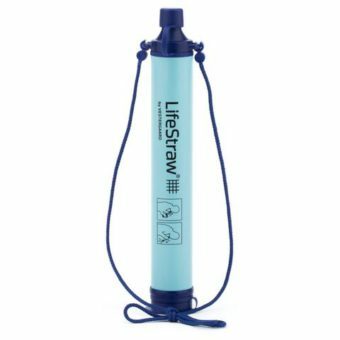
Water is your first essential, and the most important item that belongs in your backpack.
The only thing more important for your survival than water is the oxygen that you breathe.
Think about that, as you put your water bottle into your bag.
1-LITER of water, in a Nalgene bottle, weighs 2 lbs, 12.3 oz. Simple math, and 2 liters of water weigh over 5 lbs.
Depending on where you will be hiking for the day, water becomes an issue, very early. You need to stay hydrated.
You’ve heard this story before, but I’ll keep repeating it.
Where I do most of my hiking there is almost always water available, except during very hot and dry periods. Finding water to drink is seldom a problem for me, BUT, I carry a water filter on all my day hikes.
My little trooper is called a LifeStraw.
With my 1-liter water bottle and my water filtering device, I consider my water issues resolved.
To keep things simple, I’ll include food/snacks in this section as well.
Here I’m primarily focused on nutritious, calorie-packed snacks, to supply me with the fuel I’ll be needing for the day.
Bring things that you normally eat. Don’t surprise your stomach. Indigestion does not make a good hiking companion.
Dried Fruit, nuts, chocolate, power bars, and such are good examples. Remember that you can survive for 3 weeks without food, so a few pieces are all you need. Don’t bring food for a week, it only adds extra weight for you to carry.
You’ve probably heard of the adage, ” 3 minutes without air, 3 days without water, and 3 weeks without food “. The 3 days without water depends on where you are spending these 3 days.
In a desert, you will have to carefully consider your water supply. Not a good place for hiking if you are a beginner.
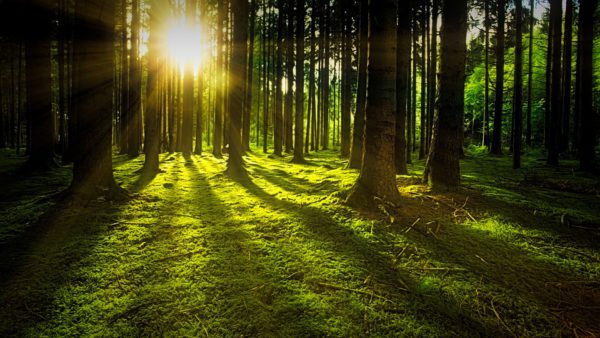
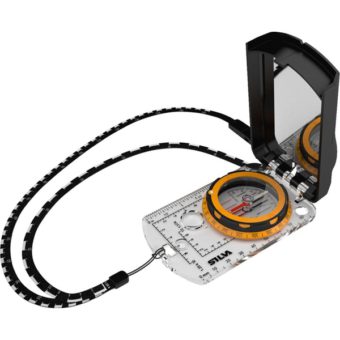
4. Map and Compass
Where are you going? Are you going alone, with a friend, or with a group? Before I get too far, have you told anyone, where you are going?
Does anyone know where to look for you, if you don’t make it back before nightfall?
I want to suggest that if you are new to hiking, it would be better to not get too ambitious for your first 4 or 5 day hikes. Get use to your footwear, the load on your backpack, and the amount of distance you can comfortably cover in a day.
Most cities and towns have well known hiking and walking trails.
This is a great place to begin your training. There are often maps and trail descriptions of these trails available online. They are often well-populated, so this makes them a safe place to get comfortable with your new gear, and what could become a lifelong habit.
With this information, it’s much easier to make intelligent decisions, and reduce your risk of getting hurt, or hiking too far, and too long to prevent you from getting back before nightfall.
This is a good time to think about getting a compass, is you don’t own one already.
5. Emergency Shelter
What will you do, if things go wrong?
Are you prepared to spend the night out?
Emergency shelters are lightweight and inexpensive. Get one as soon as you can, and keep it in your bag.
6. Firestarter
If you are unable to make it back before darkness sets in, can you build a controlled fire?
Two see-through lighters are a great combination. Inexpensive and they will last for many seasons.
Never build a fire during EXTREME fire warnings, and don’t burn down the forest!
Most of the time, you won’t need a fire, but it’s a good idea to practice for when you need one.
Never practice in the dry season, wait until conditions are very safe before you try this.
7. A knife

Did you bring a knife? Can you use it safely?
A knife in the wilderness, is like a SmartPhone in the city.
Think about that for a minute and you’ll appreciate the value of a good knife, and the skills necessary to use it.
8. A Headlamp
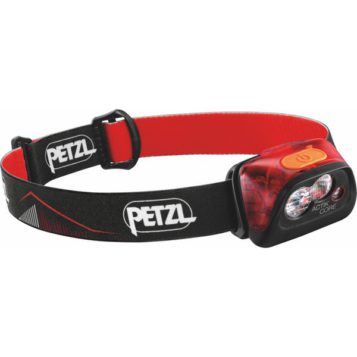
If you get lost, or venture too far, and you can’t make it back to your vehicle before it gets too dark to see, you’ll be happy to have a headlamp in your backpack. Remove the batteries and place them in your small tools pouch. ( #10 below).
This prevents your headlamp from getting accidentally turned on in your daypack, and burning out your batteries.
Some headlamps have locks that prevent your headlamp from getting accidently turned on, and burning out your batteries.
I don’t trust these devices, so I remove, my batteries and place them in my pouch.
Don’t flip your batteries around, just get them out of there.
9. First Aid
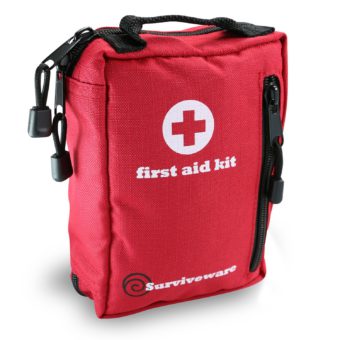
A small, well-equipped first aid kit is an essential component for your backpack. Bandages, moleskin, strapping for a twisted ankle, your medication, contact lenses solution, if you wear them.
Owning a small First Aid Kit is never a bad idea. You can leave it in your daypack.
Take a First Aid course. St. John Ambulance offers excellent 1-day courses. Lots of valuable information. You could even end up helping someone else. This First Aid course adds NO weight to your backpack.
10. A small tools pouch
This is small pouch of handy and useful extras that make themselves essential. This little pouch keeps all your stuff well organized so that you don’t need to fish in your bag like a mad person, or dump your stuff on the ground like a crazy person.
This pouch can be used to store your lighter, knife, whistle, the batteries for your headlamp, and similar items that belong in YOUR life.
bonus tips to enjoy your day hike
- comfortable footwear
- extra pair of socks
- do you need rain gear or an umbrella
- don’t forget your water
- bring snacks
- get a map of the area
- estimate the amount of daylight left in the day when you begin
- divide your daylight hours by 2, and stop 1 hour before, to rest, rehydrate, and grab a bite before you begin the return home
- don’t forget to tell someone where you are going, and when you expect to return
- is there cell phone service
- do you have an emergency plan
- did you bring a first aid kit
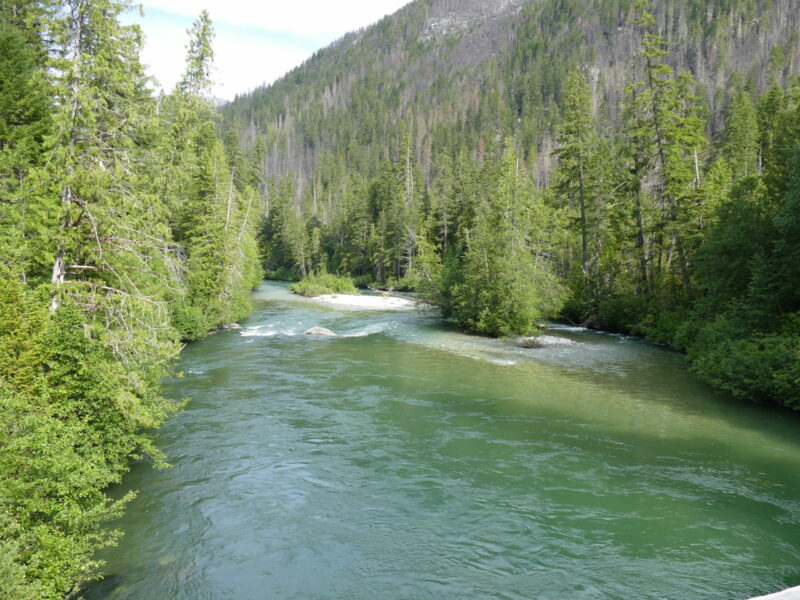
More Things to Consider
Remember why you went hiking in the first place. You are out on the trails, for the fresh air and the exercise.
Hiking is the easiest and most enjoyable way to exercise. Where else can you see such fantastic scenery and get to exercise your body for free.
Your objective is to relax and enjoy the day. The right footwear, and comfortable, loose-fitting clothing, are going to make your hike more comfortable.
Hike at a comfortable pace. Take the time to stop, and have a look around. Enjoy your environment. This is not a death-march. You make the rules.
I love to read and hear from fellow hikers. Drop me a few lines, with your comments, questions, or suggestions. You can comment and share your thoughts with your thoughts in the space below. Motivational Quotes are accepted.
